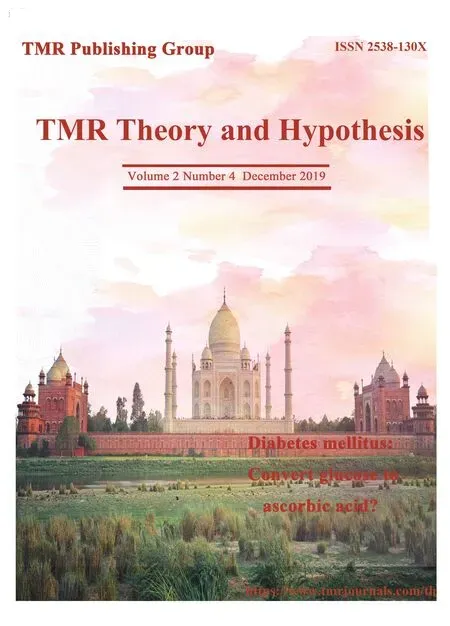Medical ethics w.s.r to ayurveda
Dr preetam k Lamani
B.V.V.Sangha's Ayurveda Medical college and Hospital, Department of agadatantra, Bagalkot, Karnataka, India.
Abstract
Key words: Ayurveda, Medical ethics, Chikitsa chatushpada
Background
Ayurveda laid a great deal of stress on good health and its maintenance, even as it laid out its elaborate encyclopedia on diseases and their management.Health was regarded as a state of equilibrium that was sustained by a number of component equilibria.These included the equilibrium of the tissues of the body; of doshas or functional units; of fires that burn in the tissues and bring about changes such as food into tissues and so on, body was designed to maintain this equilibrium, which was its natural state.Any deviation into disequilibrium, which we call disease, was largely brought on by one's own misdeeds, and it could be counted upon to resolve and return to equilibrium automatically [1].
Hospital Management is an integrated approach.It needs an effective team which works towards selfless and committed service towards healing the mankind of their ailments.
Chikitsa Chatushpada or 4 limbs of treatment or medical system or hospital management as explained in Ayurvedic texts - is probably the first of its kind to be explained in any medical book.Chikitsa Chatushpada deals with 4 important limbs or members of a treatment protocol and demands the qualitative involvement of each member towards effective healing [2].As the name indicates, Chikitsa Chatushpada includes 4 members.
Bhishak - The Doctor (physician):
The Doctor forms the most important limb of the medical system / treatment lineup / protocol.He is an important member without whom the effective treatment protocol cannot be accomplished.He is the person who diagnoses the disease of the patient and plans up a line of treatment projected towards eあective healing of the disease and the diseased in question [3].
Physician [4] were broadly classified as 1) chadmachara Vaidya; 2)siddha sadhitaVaidya; 3)vaidyaguna yuktha Vaidya.The wise physician who practices medical science by keeping all the instruments ready in hand(well-equipped physician)and pretends to be a doctor [5].
The physician who follows medical rules and regulations,medical ethics very strictly is referred as chadmachara vaidya (false doctor).One who practices medical science by getting sufficient skills from experienced doctor is known as siddha sadhita.(skilled doctor) [6].One who possess all the qualities of vaidya as mentiobned above is said as vaidya guna yukta (wise physician) [7].
Dravya - The Medicine or Drug, Full-fledged Pharmacy
Once the disease has been identified and diagnosed by the physician, the implementation of suitable medicines (drugs, herbs, treatment) towards healing of the disease and diseased comes into The medicines may be prepared (as in Ayurvedic pharmacies) or dispensed as in pharmacies or prescribed to be sought for in drug stores.The pharmacy needs to be fullfledged so that all the necessary medicines are available readily when the need sets in [8].
Upasthatha - Care-takers, Attendants, Nursing and Support Staあ
The patient needs someone to care for and provide him or her with the prescribed medicines at proper time, to be affectionate, provides good diet and gives selfless service by keeping themselves at the disposal of the patient.Nursing and support staあ at hospital, family and friends at home fulfil the role of Upasthatha.The process of healing becomes diきcult in the absence of these kind hearted people [9].
Rogi - The Patient
If there is no disease, there is no patient and if there is no patient there is no doctor or hospital.The treatment line-up is mainly drafted targeting the Patient or diseased.He must have good memory, he must be financially sound and under the control of treating doctor.Thus the patient forms another important limb of the treatment protocol [9].
Discussion
Medical ethics is a system of moral principles that apply values to the practice of clinical medicine and in scientific research.Medical ethics is based on a set of values that professionals can refer to in the case of any confusion or conflict.The patient is not the victim of his disease, the doctor is not the savior.There is no magical miracle formula either allopathic, naturopathic, or otherwise, that will change things.The herb, the pill, the medicine in itself will not be the miracle element that will always work in any condition.Getting back to health is an holistic process, a conversion to life, a choice that needs to be applied in all fields by the patient, that includes lifestyle, state of mind, diet, etc.It is important that the patient learns how to handle himself with intelligence and nourishment for life.Health is first and foremost a personal choice.Such as there is not a single factor leading to disease, there is no single factor leading to recovery.Ayurvedic ethics are more oriented toward the principle of beneficence, non-maleficence than the principle of autonomy.Hence, Ayurveda should be recognized as a pioneer in foundation of four basic tenets of bioethics.
 Medical Theory and Hypothesis2019年4期
Medical Theory and Hypothesis2019年4期
- Medical Theory and Hypothesis的其它文章
- Interpretation of data and treatment of Jing-well point temperatures´ test
- Analysis of uterine artery and sex hormones in treating diminished ovarian reserve with tiaojing decoction
- Potential new metabolic approach for treatment of diabetes mellitus: converting glucose to ascorbic acid (vitamin C)
- Application value of tongue coating microflora in integration of traditional Chinese medicine and modern medicine
